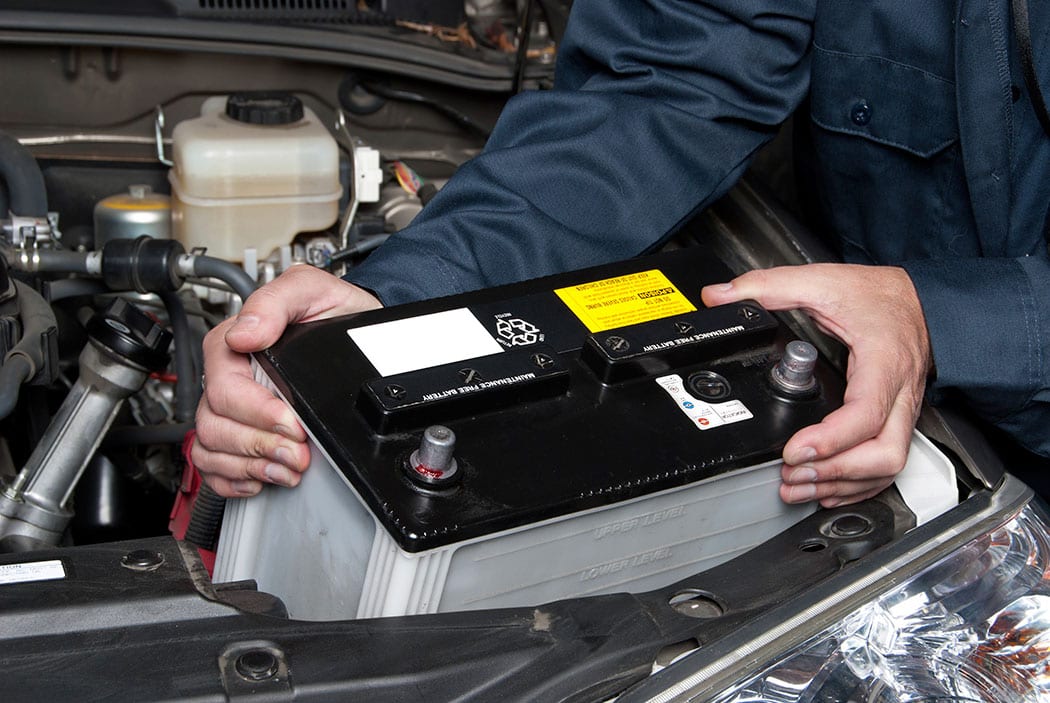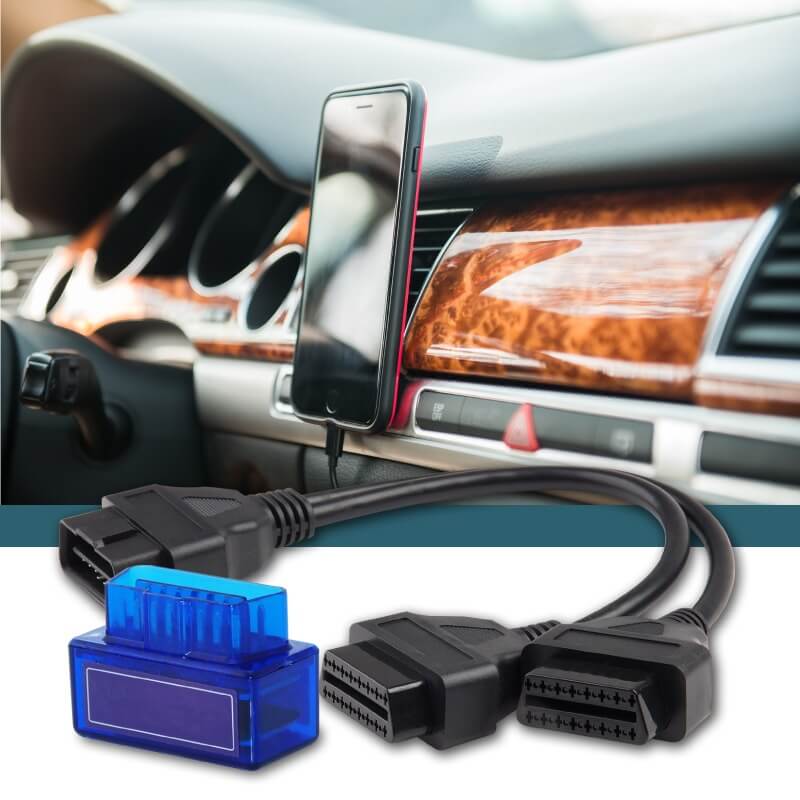1. What Is a Car Battery?
A car battery is a rechargeable power source that provides electrical energy to the vehicle’s starter motor, which turns the engine over. It also powers other electrical components when the engine is off, such as the interior lights, radio, and dashboard.
The battery contains chemicals that undergo a chemical reaction to create a flow of electricity. Most car batteries are made up of lead-acid cells, which are durable and effective for automotive use. These batteries are typically 12 volts and consist of six cells, each providing about 2 volts.
2. How Does a Car Battery Work?
The car battery works by converting chemical energy into electrical energy. When the car is off, the battery provides power to run accessories like lights and sound systems. When the car is running, the alternator takes over and recharges the battery, keeping it full.
Here’s a simplified breakdown of how the car battery functions:
- Starting the car: When you turn the ignition, the car battery sends power to the starter motor, which turns the engine over.
- Powering electrical systems: Once the engine is running, the alternator generates electricity to power the car’s electrical systems and recharge the battery. This process is continuous while the car is operating.
- Storage: The battery stores electrical energy for use when the car is not running. This ensures that your car can start even when it hasn’t been used for a while.
3. Signs of a Failing Car Battery
Car batteries don’t last forever, and over time they lose their ability to hold a charge. Here are common signs that your https://sockitforward.com may be failing and needs to be replaced:
a. Slow Engine Crank
If you notice that the engine is turning over slowly or taking longer than usual to start, it could be a sign that your battery is losing power. This is often one of the first symptoms of a failing battery.
b. Dim Lights or Electrical Issues
A weak or dying battery can result in dim headlights, dashboard lights, or flickering electronics. If the car’s electrical systems aren’t performing as they should, it could be due to a drop in battery voltage.
c. Check Engine or Battery Warning Light
Many vehicles have a dashboard warning light that indicates an issue with the car’s battery or charging system. If this light comes on, it could signal a problem with the battery or the alternator that needs immediate attention.
d. Corroded Battery Terminals
Battery terminals can corrode over time, leading to poor electrical contact. If you notice a white, crusty substance around the battery’s terminals, it’s a sign of corrosion, which can weaken the battery’s ability to work properly.
e. Old Battery
Car batteries typically last between 3 to 5 years, depending on the climate, how often the car is driven, and other factors. If your battery is older than 3 years, it may be time to have it tested or replaced, even if you’re not experiencing symptoms yet.
4. How Long Do Car Batteries Last?
The lifespan of a car battery depends on several factors, including the type of battery, the climate, and driving habits. On average, a car battery lasts 3 to 5 years. However, extreme temperatures—either hot or cold—can shorten the lifespan of a battery. Hot climates cause the battery fluid to evaporate, leading to internal damage, while cold climates can reduce the battery’s ability to generate power.
To extend your battery’s lifespan, it’s important to avoid leaving your car unused for long periods and to ensure the battery is regularly charged.
5. How to Maintain Your Car Battery
Proper maintenance can help extend the life of your car battery and prevent unexpected failures. Here are some useful tips to maintain your car battery:
a. Regularly Check the Battery Terminals
Make sure the battery terminals are clean and free of corrosion. If you spot any buildup around the terminals, carefully clean it with a mixture of baking soda and water, and then dry it thoroughly. Tighten the battery terminals if they appear loose, as this can prevent issues with the electrical system.
b. Limit Short Trips
Frequent short trips don’t give your car’s alternator enough time to recharge the battery fully. If possible, try to take longer drives to allow the alternator to properly recharge the battery.
c. Check the Battery Voltage
You can use a voltmeter to check the voltage of your car’s battery. A healthy, fully charged battery should read around 12.6 to 12.8 volts when the car is off. If the reading is below 12.4 volts, it could indicate that the battery is weak or not charging correctly.
d. Avoid Using Electrical Accessories When the Engine is Off
Avoid running electrical systems (like the radio or air conditioning) when the engine is off. Doing so will drain the battery and may prevent it from starting your vehicle the next time you need it.
e. Test the Battery Regularly
Many auto repair shops offer free battery testing. Have your battery checked periodically—especially if it’s over 3 years old—to ensure it’s in good condition. Testing can help identify any issues early before the battery dies completely.
6. Replacing Your Car Battery
If your car battery is failing, it’s essential to replace it before it leaves you stranded. When purchasing a new battery, make sure to select one that is the correct size and specification for your car. You can consult your vehicle’s manual for the proper battery type.
When installing a new battery, it’s often best to have it done by a professional to ensure it’s installed correctly and the electrical systems are properly connected. However, replacing a battery yourself is relatively simple, provided you have the correct tools and safety equipment.
7. How to Dispose of a Car Battery
Car batteries are hazardous waste and should never be disposed of in the trash. Fortunately, many auto parts stores, service centers, and recycling centers offer battery recycling programs. They will safely dispose of your old battery and ensure that harmful materials, such as lead and acid, are properly managed.
8. Conclusion
The car battery is a crucial part of your vehicle’s functionality, powering everything from the engine to electrical systems. Regular maintenance, including checking the battery’s voltage and cleaning the terminals, can prolong the life of your battery and ensure your car runs smoothly. If you experience any signs of battery failure, don’t hesitate to get it tested and replaced before it causes an issue. By taking good care of your car battery, you can avoid unexpected breakdowns and keep your vehicle running reliably.






